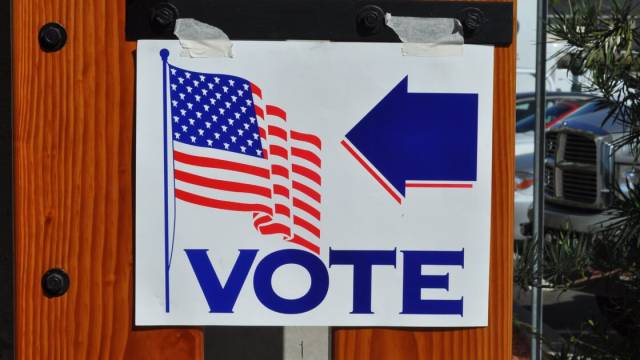Tom Arthur from Orange, CA, United States, CC BY-SA 2.0 <https://creativecommons.org/licenses/by-sa/2.0>, via Wikimedia Commons
Liberal and Democratic leaders are asserting that the Supreme Court is preparing to issue a decision that would limit voting rights by excluding race from the districting process. This assertion is unfounded.
According to the U.S. Constitution, all adults aged 18 and older retain the right to vote, which remains intact regardless of any forthcoming rulings or policies. No legal decision can eliminate or restrict this constitutional right.
The real concern for critics is the potential end of using race as a criterion in electoral districting. The Trump administration contended that the emphasis on race in this process violated the Equal Protection Clause of the Constitution. The aim is to ensure district boundaries are drawn based on population and geography, rather than racial considerations.
The ongoing debate and the exaggerated claims of lost rights highlight a significant divide between the two political parties. Republicans assert that true equality means applying the same rules to everyone, irrespective of race, while Democrats argue that equality necessitates different rules for different racial groups.
During recent discussions, conservative justices, including Brett Kavanaugh and Chief Justice John Roberts, indicated a willingness to limit race-based remedies in redistricting, suggesting that the Court may impose new restrictions on how race is utilized in congressional map designs.
In contrast, the Court’s three liberal justices cautioned that diminishing Section 2 of the Voting Rights Act could effectively dismantle the law and reduce minority representation in Congress.
Democrats maintain that Section 2 is crucial for safeguarding minority voting rights and caution that a conservative ruling in the current Louisiana case could lead to extensive redistricting, potentially decreasing minority-held seats, especially in the South.
However, the United States does not operate under a quota system, and no congressional seats are designated as “minority seats.” A fair, race-neutral voting process would result in seats being awarded to candidates based solely on the number of votes received, regardless of race.
The Supreme Court’s decision, anticipated by mid-2026, may signify another substantial rollback of federal race-based policies, following the 2013 repeal of Section 5 of the Voting Rights Act and the 2023 ruling that ended affirmative action in college admissions.
Democrats argue that minority “voting power” or “electoral influence” will be diminished. The Voting Rights Act prohibits practices that “deny or abridge the right to vote on account of race.” Courts have historically interpreted “abridge” to encompass not only preventing voting but also drawing district lines that deliberately weaken minority voting strength. Democrats assert that the Act is essential for ensuring that every vote holds equal weight and influence.
However, even if the current interpretation of the Act is narrowed or overturned, every vote will still count equally—one person, one vote. Such a change would not reduce anyone’s voting power; it would mean that election outcomes reflect voters’ choices rather than racially engineered districts.
The Voting Rights Act of 1965 was established to address issues where, despite Black Americans being granted the legal right to vote, many states continued to manipulate district lines to weaken their political influence. For example, a district could be constructed so that if a city was 40 percent Black, Black voters would be divided into multiple districts, consistently remaining a minority.
The law mandates that when racial minorities are geographically concentrated, district lines should be drawn to allow them a fair opportunity to elect representatives of their choice.
A clear illustration of this system is found in Alabama, where the population is approximately 27 percent Black, yet only one of seven congressional districts was created with a Black majority according to its 2021 map. A federal court determined this violated the Voting Rights Act, indicating that a second district could be reasonably drawn to ensure Black voters have meaningful electoral influence.
Opponents of race-based mapping contend that districts should be drawn based on geography, not race. While 27 percent of Alabama’s population is Black, that does not imply that 1.89 of the state’s seven congressional districts must be majority-Black. Populations are not evenly distributed, and Black communities often span various regions, leading to discrepancies between the number of Black-majority districts and the percentage of African Americans in the state.
Race-based redistricting often creates distorted and irregularly shaped districts that disregard natural geographic and community boundaries. This practice can exacerbate racial divisions by suggesting that voting patterns are driven by race rather than individual beliefs or interests. It contradicts the colorblind ideal that America aspires to achieve and risks reinforcing the very divisions it attempts to resolve.
Race-conscious redistricting undermines the foundational principles of equality and fairness embedded in the Constitution. It categorizes individuals by race rather than recognizing them as citizens with equal rights under the law. Justice Clarence Thomas has long argued that race-based districting violates the Equal Protection Clause by prioritizing collective identity over individual equality.
Moreover, it rests on flawed assumptions that Black and White voters inherently have different interests or that only individuals of the same race can adequately represent a community’s needs. These ideas are outdated and reductive. Political opinions vary within every racial group, and treating minorities as monolithic voting blocs disregards this reality.
Ultimately, race-based redistricting conveys a patronizing message: that certain racial groups cannot compete fairly in the democratic process without special assistance. This undermines both individual dignity and trust in democracy. Rather than fostering unity and equality, it perpetuates dependence and division, weakening the system it claims to enhance.
The post No Reduction in Voting Rights Despite Claims of Upcoming Supreme Court Ruling appeared first on The Gateway Pundit.
 Telegram is where we really talk. Don't miss out!
Telegram is where we really talk. Don't miss out!








